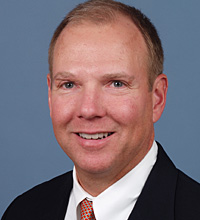Game On – No contest!
The concept of multidisciplinary teams has been around for as long as I can remember, and teams can certainly produce great results for family companies in the right circumstances. However, in 25 years and with hundreds of consultations, I have found that multidisciplinary teams rarely work well. The following is a brief analysis of why some multidisciplinary exercises work well while most – in my opinion – produce poor results.
I have identified 11 elements that are important to consider when forming or working on multidisciplinary teams and there are probably many more. I’ll walk through each of the 11 with a brief explanation and a few real life examples.
-
- Agenda.
Working successfully on a multi-disciplinary team requires that everyone utilize a shared, mutually designed and agreed upon agenda and project delivery schedule (see #2 below). Problems arise when there are differing, potentially conflicting agendas. For example, working alongside another advisor years ago, I was taken aback by the constant pressing for a financial product early in the process. The product being proposed was definitely a part of the solution for this particular client, but I didn’t understand why, having been included from day one on the agenda design and sequence, this colleague kept pushing it as the #1 priority. Whatever the reason, this person’s agenda was distinctly different from the other professionals.
- Agenda.
-
- Sequence of deliverables.
On a team of professionals working well together, the sequence of deliverables is clear and well planned. That doesn’t mean it’s rigid; it would take a foolhardy family business advisor to stick to a rigid plan in the face of changing client needs or wants. On teams which fail to function, the sequence of work products is ever shifting. In spite of a planned and agreed upon sequence of deliverables, a professional might say, “I can’t participate in any more meetings until after April 15th; the project will have to wait until then.” Having one or more professionals who unilaterally break up the deliverables sequence and stall client momentum inevitably causes the multidisciplinary team to break down.
- Sequence of deliverables.
-
- Money.
Some members of multidisciplinary teams seem to think that working for a family business client is a zero sum game. Clients are willing to spend money on professionals when they feel they’re getting good value for that money. When they perceive that a professional is attending meetings simply to create billable hours without offering substance, that’s when they get antsy, tighten the budget, and exclude advisors. If the team is doing good work for the client, there’s usually plenty of money so all can be fairly rewarded. Accepting new members on a team dedicated to producing great results for a mutual client should be a no-brainer. Sadly, that is often not the case. To be sure, family business clients are THRIFTY! Sometimes, in spite of pressing needs, they are NOT willing to pay for three or more professionals to attend meetings and devise solutions. They often look at professional advisors as an expense – not an investment – and are not willing to subsidize even productive team play. Excessive client penuriousness is another barrier to the formation and execution of multidisciplinary teams.
- Money.
-
- Training and orientation.
Many family enterprise consultants, whatever their professions of origin, are oriented towards multidisciplinary work. Unfortunately, that’s not the norm in most professions. Accountants seem to think that family business problems must be solved by other accountants; attorneys think that only attorneys have viable solutions. And so on. And for most of the work they’re called on to do, they’re right! An accounting firm doesn’t need other professionals to do an audit or complete a tax return. A law firm doesn’t need other professionals to draft a contract. Bankers don’t need other professionals to administer deposits and loans. Most of the time there is simply not a need for a multidisciplinary team – except when there is! And that’s where the wheels fall off; many professionals are not oriented towards working together in groups, and their industry cultures offer little precedence and virtually no training on partnering.
- Training and orientation.
-
- Communication.
In multidisciplinary teams, communication must be planful and frequent. Where teams don’t work is in cases where communication is last-minute, hurried or sporadic. Many professionals, for a variety of reasons, are swamped and have more work than they can handle. “Busy-ness” can preclude the frequency and depth of communication needed to serve clients well on multidisciplinary teams. The absence of healthy team communication means that the professionals won’t find the experience any more satisfying than the client and will be less inclined to pursue the team solution next time.
- Communication.
-
- Ego.
It amazes me how some very successful professionals have such fragile and prickly egos! Over the years I have been flabbergasted at the immature behavior and needless posturing of some professionals. Having a strong ego may be a prerequisite for becoming successful. Having a raging, out-of-control or fragile ego serves no one, most especially the client. Advisers who are willing to put their own ego needs on the back burner in favor of the needs of their clients are, in my experience, rare, and that is a significant barrier to the formation of effective teams.
- Ego.
-
- Time.
Multidisciplinary teams require much more time for communication and collaboration than assignments handled by one professional. Referring to #5 above, the time crunch experienced by many busy professionals means they either don’t have or are unwilling to commit the kind of time necessary to coexist peacefully and productively on a multidisciplinary team. Some professionals also worry about their inability to be compensated directly for the additional time teams require, and that’s another barrier to successful collaboration.
- Time.
-
- Quarterback.
Every team needs a good quarterback. When groups work well together, one professional is recognized and respected as the team’s organizer and facilitator. That professional is ready, willing, and able to accept the role of quarterback and do the many behind the scenes things necessary to make sure the team functions well together – including kicking another professional in the shins when necessary. Where a team functions poorly, the quarterback role shifts continually and becomes a power struggle to determine who is preeminent in the eyes of the client (see #6 above), or the choice of quarterback is a poor leader and doesn’t have the skills necessary to drive the team.
- Quarterback.
-
- Trust.
Trust on successful teams is high. On unsuccessful teams, it’s low to nonexistent.
- Trust.
-
- Respect.
Respect on successful teams is high. On unsuccessful teams, it’s low to nonexistent.
- Respect.
- Pacing.
Just as in sports, momentum is very important in delivering successful family business planning. The pacing of the client assignment should be brisk and regular. When one or more professionals on a multidisciplinary team take months, or, believe it or not, years to produce a deliverable, that’s a deal killer. Making a client and others on the team wait for one or more pieces of the deliverable is unconscionable. In a case where professionals can’t hold up their end of the bargain, they should punt to another who can step in and deliver.
When multidisciplinary teams work well, they’re a thing to be cherished and a powerful engine for solving family business needs. When, on the other hand, teams break down for one or more of the reasons above, they are more trouble than they’re worth. Consultants and advisors who are willing to commit to being good team players and invest the time necessary to make the team work will find a great payoff. Having said that, successful multidisciplinary teams are rare – my estimate is less than 25% of professional collaborations go smoothly — and should be approached cautiously and with one’s eyes wide open.
About the contributor:
 Wayne Rivers is the president of The Family Business Institute, Inc. FBI’s mission is to deliver interpersonal, operational and financial solutions to help family and closely-held businesses achieve breakthrough success. Wayne is an FFI Fellow. He can be reached at info@familybusinessinstitute.com.
Wayne Rivers is the president of The Family Business Institute, Inc. FBI’s mission is to deliver interpersonal, operational and financial solutions to help family and closely-held businesses achieve breakthrough success. Wayne is an FFI Fellow. He can be reached at info@familybusinessinstitute.com.




